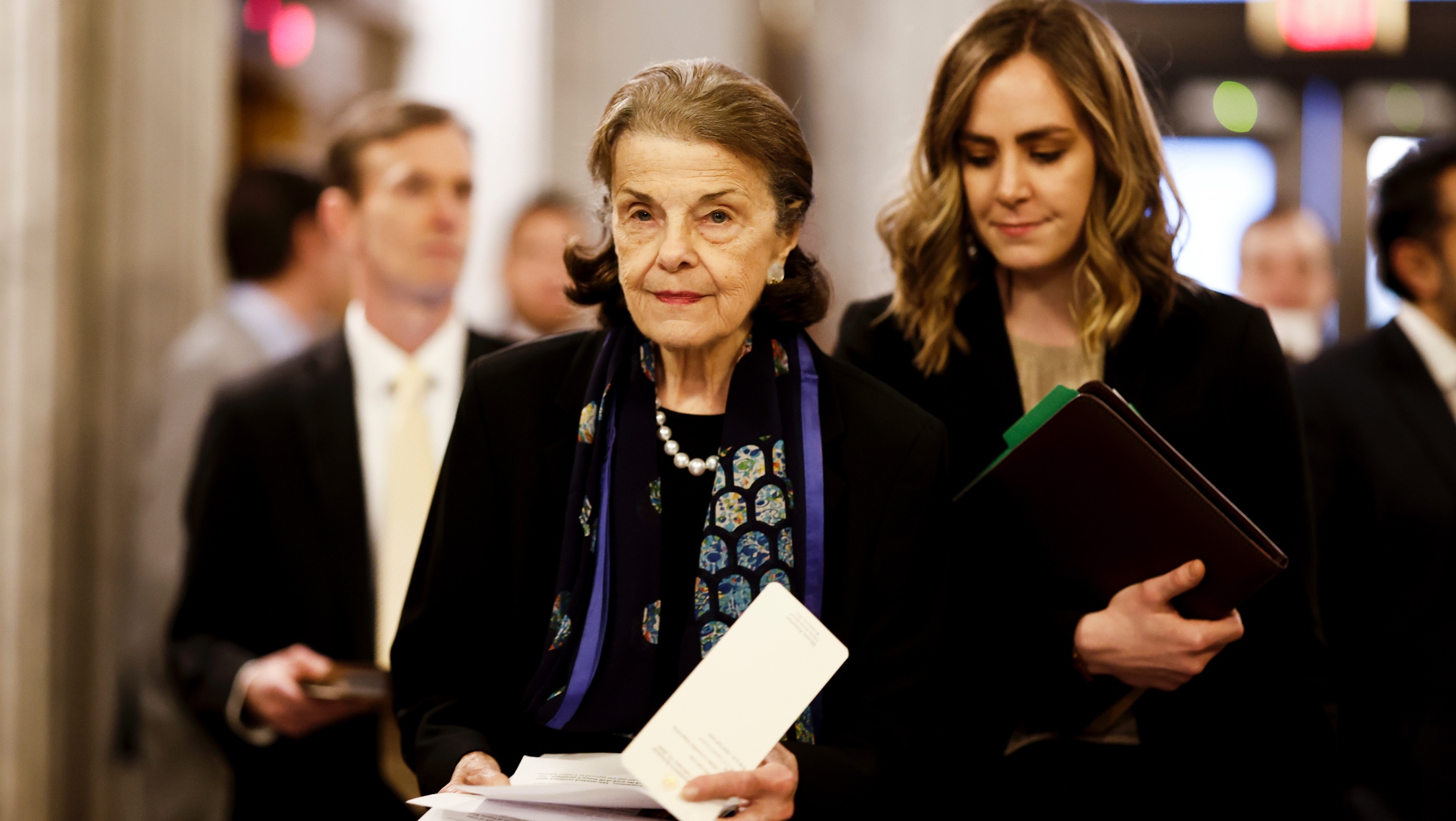WASHINGTON (JTA) — Sen. Dianne Feinstein, a Jewish Democrat from California who has been in office for more than three decades, will not run in 2024.
“I am announcing today I will not run for reelection in 2024, but intend to accomplish as much for California as I can through the end of next year when my term ends,” she said Tuesday in a statement.
Feinstein, 89, has been in the Senate since 1992 and has been closely watched in recent years because of concerns about her health and declining mental acuity. She stepped down as the top Democrat on the Judiciary Committee in November 2020 because of those concerns, although within weeks she said she had no intentions of leaving the Senate. Feinstein is the Senate’s oldest sitting member, and is its longest-serving Jew currently in office.
Anticipating Feinstein’s departure, two Democratic U.S. representatives have already declared their intention to run for her seat: Katie Porter and Adam Schiff, who is Jewish, and who told the Jewish Telegraphic Agency that he will continue Feinstein’s commitment to Jewish values if he is elected.
“I would be proud to carry on just a portion of their legacy,” Schiff said of Feinstein and another longtime Jewish senator from California who retired in 2017, Barbara Boxer. Referring to a traditional Jewish imperative to repair the world, he added, “I would love to bring that passion for tikkun olam with me to the U.S. Senate.”
Feinstein rose to national prominence in 1978 when she was the president of the Board of Supervisors in San Francisco and found the body of Harvey Milk. Milk, who was Jewish, was the first openly gay elected official in the city’s history and was assassinated by a former colleague, Dan White. White also killed San Francisco Mayor George Moscone.
Feinstein announced the murders while her hands were still stained with Milk’s blood. She soon stepped in to replace Moscone, serving two terms as mayor.
She won a special election in 1992 to replace Sen. Pete Wilson, a Republican who was elected governor. She became one of the fiercest advocates in the country for gun control, which she attributed to her trauma following the killing of Milk and Moscone.
Feinstein was a political centrist and a reliable pro-Israel vote, though she emerged in the mid-2000s as a sharp critic of Israel’s use of mines and cluster bombs in the 2006 war in Lebanon.
She also served on the Senate Intelligence Committee for many years, including during a period when the intelligence community came under fire for its failures and excesses surrounding the Iraq War. She was the top Democrat on the committee from 2009 to 2017. At first a staunch defender of the intelligence community, she eventually became one of its most senior critics, particularly for its use of torture.
“Each of us was sent here to solve problems,” Feinstein said in her statement, which referenced work on an assault weapons ban in 1994 and a report on CIA use of torture two decades later. “That’s what I’ve done for the last 30 years, and that’s what I plan to do for the next two years.”




